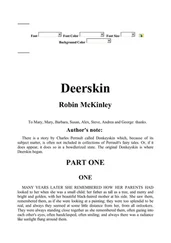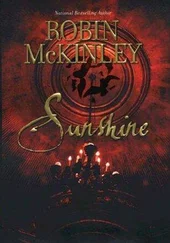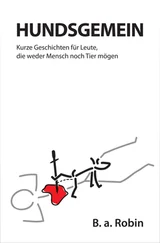Robin McKinley - Water
Здесь есть возможность читать онлайн «Robin McKinley - Water» весь текст электронной книги совершенно бесплатно (целиком полную версию без сокращений). В некоторых случаях можно слушать аудио, скачать через торрент в формате fb2 и присутствует краткое содержание. Год выпуска: 2002, ISBN: 2002, Издательство: Firebird, Жанр: Старинная литература, на английском языке. Описание произведения, (предисловие) а так же отзывы посетителей доступны на портале библиотеки ЛибКат.
- Название:Water
- Автор:
- Издательство:Firebird
- Жанр:
- Год:2002
- ISBN:9780142402443
- Рейтинг книги:4 / 5. Голосов: 1
-
Избранное:Добавить в избранное
- Отзывы:
-
Ваша оценка:
- 80
- 1
- 2
- 3
- 4
- 5
Water: краткое содержание, описание и аннотация
Предлагаем к чтению аннотацию, описание, краткое содержание или предисловие (зависит от того, что написал сам автор книги «Water»). Если вы не нашли необходимую информацию о книге — напишите в комментариях, мы постараемся отыскать её.
Water — читать онлайн бесплатно полную книгу (весь текст) целиком
Ниже представлен текст книги, разбитый по страницам. Система сохранения места последней прочитанной страницы, позволяет с удобством читать онлайн бесплатно книгу «Water», без необходимости каждый раз заново искать на чём Вы остановились. Поставьте закладку, и сможете в любой момент перейти на страницу, на которой закончили чтение.
Интервал:
Закладка:
She shook her head. “Chinilar?” she said.
He looked at her as if playing over in his mind what she had last said. He spoke gently. “This is the station of the fourth Watcher, the Citadel of the Meeting of the Sands, and I am he.”
“The fourth—Watcher?” she said.
“There are eleven of us,” he said, still gently. “We watch over the eleven Sandpales where the blood of the head of Maur sank into the earth after Aerin and Tor threw the evil thing out of the City and it burnt the forests and rivers of the Old Damar to the Great Desert in the rage of its thwarting. Much of the desert is quiet—as much as any desert is quiet—but Tor, the Just and Powerful, set up our eleven stations where the desert is not quiet. The first is named the Citadel of the Raising of the Sands, and the second is the Citadel of the Parting of the Sands, and the third is the Citadel of the Breathing of the Sands. . . . The third, fourth, fifth, and sixth Watchers are often called upon, for our Pales lie near the fastest way through the Great Desert, from Rawalthifan in the West to the plain that lies before the Queen’s City itself. But I—I have never Watched so badly before. Where did you come from?” he said again, and now she heard the frustration and distress in his voice. “Where do you come from, as if the storm itself had brought you?”
Faintly she replied: “I come from Roanshire, one of the south counties of the Homeland; I live in a town called Farbellow about fifteen miles southwest of Mauncester. We live above my father’s furniture shop. And I still do not know where I am.”
He answered: “I have never heard of Roanshire, or the Homeland, or Mauncester. The storm brought you far indeed. This is the land called Damar, and you stand at the fourth Sandpale at the edge of the Great Desert we call Kalarsham.”
And then there was a terrible light in her eyes like the sun bursting, and when she put her hands up to protect her face there was a hand on her shoulder, shaking her, and a voice, a familiar voice, saying, “Hetta, Hetta, wake up, are you ill?” But the voice sounded strange, despite its familiarity, as if speaking a language she used to know but had nearly forgotten. But she heard anxiety in the voice, and fear, and she swam towards that fear, from whatever far place she was in, for she knew the fear, it was hers, and her burden to protect those who shared it. Before she fully remembered the fear or the life that went with it, she heard another voice, an angry voice, and it growled: “Get the lazy lie-abed on her feet or it won’t be a hand on her shoulder she next feels”—it was her father’s voice.
She gasped as if surfacing from drowning (the howl of the wind, the beating against her body, her face, she had been drowning in sand), and opened her eyes. She tried to sit up, to stand up, but she had come back too far in too short a span of time, and she was dizzy, and her feet wouldn’t hold her. She would have fallen, except Ruth caught her—it had been Ruth’s hand on her shoulder, Ruth’s the first voice she heard.
“Are you ill? Are you ill? I have tried to wake you before— it is long past sun-up and the storm has blown out, but there is a tree down that has broken our paling, and the front window of the shop. There are glass splinters and wood shavings everywhere—you could drown in them. Dad says Jeff and I won’t go to school today, there is too much to do here, although I think two more people with dust-pans will only get in each other’s way, but Jeff will somehow manage to disappear and be found hours later at his computer, so it hardly matters.”
Hetta’s hands were fumbling for her clothes before Ruth finished speaking. She still felt dizzy and sick, and disoriented; but the fear was well known and it knew what to do, and she was dressed and in the kitchen in a few minutes, although her hair was uncombed and her eyes felt swollen and her mouth tasted of . . . sand. She went on with the preparations for breakfast as she had done many mornings, only half-registering the unusual noises below in the shop, habit held her, habit and fear, as Ruth’s hands had held her—
—As the strange cinnamon-skinned man’s hands had held her.
After she loaded the breakfast dishes into the dishwasher, she dared run upstairs and wash her face and brush her hair. . . . Her hair felt stiff, dusty. She looked down at the top of her chest of drawers and the bare, swept wooden floor she stood on and saw . . . sand. It might have been wood dust carried by yesterday’s storm wind; but no tree produced those flat, glinting fragments. She stared a moment, her hair-brush in her hand, and then laid the brush down, turned, and threw the sheets of her bed back.
Sand. More pale, glittery sand. Not enough to sweep together in a hand, but enough to feel on a fingertip, to hold up in the light and look again and again at the flash as if of infinitesimal mirrors.
She fell asleep that night like diving into deep water, but if she dreamed, she remembered nothing of it, and when she woke the next morning, there were no shining, mirror-fragment grains in her bedding. I imagined it, she thought. I imagined it all—and it was the worst thought she had ever had in her life. She was dressed and ready to go downstairs and make breakfast, but for a moment she could not do it. Not even the knowledge of her father’s certain wrath could make her leave her bedroom and face this day, any day, any day here, any other person, the people she knew best. She sat down on the edge of her bed and stared bleakly at nothing: into her life. But habit was stronger: it pulled her to her feet and took her downstairs, and, as it had done yesterday, led her hands and feet and body through their accustomed tasks. But yesterday had been—yesterday. Today there was nothing in her mind but darkness.
She struggled against sleep that night, against the further betrayal of the dream. It had been something to do with the storm, she thought, twisting where she lay, the sheets pulling at her like ropes. Something to do with the air a storm brought: it had more oxygen in it than usual, or less, it did funny things to your mind. . . . Some wind-roused ancient street debris that looked like sand had got somehow into her bed; some day, some day soon, but not too soon, she would ask Ruth if there had been grit in her bed too, the day after the big storm.
She took a deep breath: that smell, spicy, although no spice she knew; spice and rock and earth. She was lying on her back, and had apparently kicked free of the tangling sheets at last—no, there was still something wrapped around one ankle—but her limbs were strangely heavy, and she felt too weak even to open her eyes. But she would not sleep, she would not. A tiny breeze wandered over her face, bringing the strange smells to her; and yet her bedroom faced the street, and the street smelled of tarmac and car exhaust and dead leaves and Benny’s Fish and Chips on the opposite corner.
She groaned, and with a great effort, managed to move one arm. Both arms lay across her stomach; she dragged at one till it flopped off to lie at her side, palm down. What was she lying on? Her fingertips told her it was not cotton sheet, thin and soft from many launderings. Her fingers scratched faintly; whatever this was, it was thick and yielding, and lay over a surface much firmer (her body was telling her) than her old mattress at home.
An arm slid under her shoulders and she was lifted a few inches, and a pillow slid down to support her head. Another smell, like brandy or whisky, although unlike either—her gardener’s mind registered steeped herbs and acknowledged with frustration it did not know what herbs. She opened her eyes but saw only shadows.
“Can you drink?”
She opened her mouth obediently, and a rim pressed against her lips and tilted. She took a tiny sip; whatever it was burned and soothed simultaneously. She swallowed, and heat and serenity spread through her. Her body no longer felt leaden, and her eyes began to focus.
Читать дальшеИнтервал:
Закладка:
Похожие книги на «Water»
Представляем Вашему вниманию похожие книги на «Water» списком для выбора. Мы отобрали схожую по названию и смыслу литературу в надежде предоставить читателям больше вариантов отыскать новые, интересные, ещё непрочитанные произведения.
Обсуждение, отзывы о книге «Water» и просто собственные мнения читателей. Оставьте ваши комментарии, напишите, что Вы думаете о произведении, его смысле или главных героях. Укажите что конкретно понравилось, а что нет, и почему Вы так считаете.












